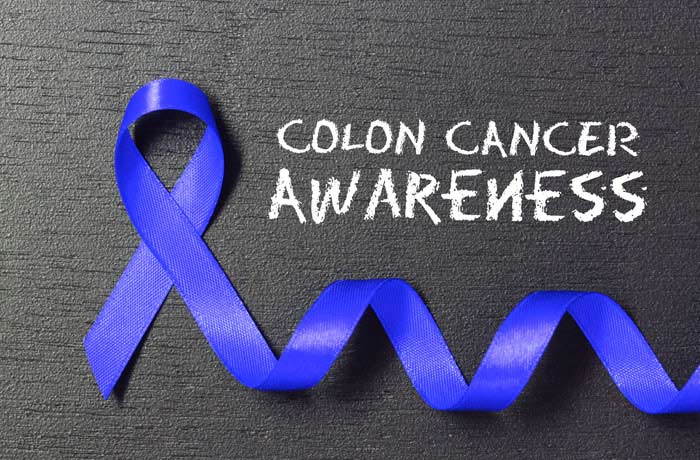
While colon cancer is one of the most common cancers in the U.S.—affecting 1 in 23 men and 1 in 25 women at some point during their lifetime—you’re far from powerless when it comes to lowering your risk of this disease.
Here are six ways to help protect your colorectal health:
1. Schedule that screening. Colorectal screenings can often find polyps (tiny growths on the colon or rectum) that can be removed before they become cancer. Experts advise routine testing for individuals age 50 and older who have a normal risk for colorectal cancer. If you have a higher risk for this type of cancer, your provider may suggest earlier or more frequent testing.
Colonoscopy is one of many tests used to screen for colorectal cancer. This test offers lifesaving benefits, as it can uncover color or rectal cancer in its earlier, more treatable stages. During a colonoscopy, your surgeon will look through a thin, flexible tube (called a colonoscope) at the inner lining of the large intestine. The tube is linked to a video monitor similar to a TV screen. A colonoscopy can help find ulcers, colon polyps, tumors and areas of inflammation or bleeding. During this test, tissue samples can be collected and any abnormal growths removed.
2. Eat your veggies. A diet that incorporates plenty of vegetables, fruits and whole grains has been linked with a decreased risk of colon or rectal cancer. Eat less red meat (beef, pork or lamb), and processed meats like hot dogs and certain luncheon meats.
3. Get moving. If you are sedentary, you may have a higher risk of developing colorectal cancer. Strive for at least 30 minutes of moderate to vigorous physical activity every day, but remember, some movement is always better than none. It can be as simple as taking a walk around your block or in the local park.
4. Manage your weight. If you are overweight or obese, you have an increased risk of colorectal cancer, as well as heart disease, diabetes and osteoarthritis. Eating well and exercising regularly can help you manage your weight.
5. Kick those butts. Don’t quit quitting! Cigarette smoking boosts your chances of colorectal cancer, as well as many other cancers. If you smoke, Holland Hospital’s Healthy Life Programs can help you kick the butts for good.
6. Drink alcohol in moderation (no more than two alcoholic drinks per day for men and one per day for women). One drink equals 12 ounces of beer, 5 ounces of wine or 1.5 ounces of 80-proof distilled spirits (hard liquor).
Holland Hospital’s Endoscopy Center offers local access to state-of-the-art screening and treatment options for colorectal cancer, as well as many other digestive disorders. Underscoring our commitment to providing the safest, highest-quality care, this Center has earned national recognition from the American Society of Gastrointestinal Endoscopy (ASGE).
Colorectal cancer affects men and women of all racial and ethnic groups and is most often found in people 50 years or older. However, because colorectal cancer is on the rise among those younger than 50, the American Cancer Society recently lowered the recommended screening age to 45 for those at average risk of the disease. Talk to your doctor about what screening guidelines are best for you. Learn more about our Endoscopy Center.